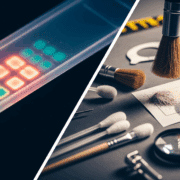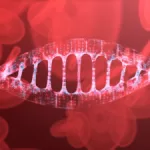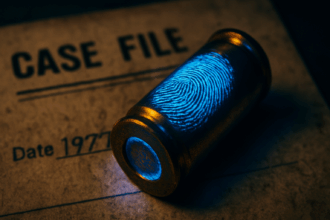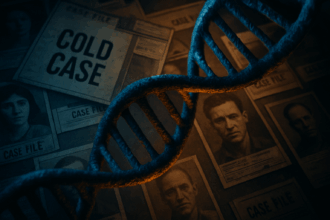Murdoch University researchers have made a significant breakthrough in forensic science
 DNA, or Deoxyribonucleic Acid, is the genetic material found in cells, composed of a double helix structure. It serves as the genetic blueprint for all living organisms. Read Full Definition evidence
DNA, or Deoxyribonucleic Acid, is the genetic material found in cells, composed of a double helix structure. It serves as the genetic blueprint for all living organisms. Read Full Definition evidence
Lead researcher Ruby Dixon, a Ph.D. candidate at Murdoch University, expressed her motivation to address the pervasive issue of sexual assault and develop alternative methods for identifying perpetrators. Recognizing the millions of individuals who experience sexual violence, Dixon emphasized the importance of her research in positively impacting the lives of victim-survivors.
The study examined the naturally occurring bacteria in human sexual organs before and after intercourse. Dixon, alongside senior lecturer Brendan Chapman, discovered evidence suggesting an exchange of bacteria between sexual partners during intercourse. If further research confirms that these bacteria are unique to individuals, they could be a reliable marker for identifying perpetrators when DNA evidence is absent.
The ultimate goal of this research is to enable investigators to collect swabs and analyze the bacteria, establishing links to individuals or eliminating suspects from investigations. This method is up-and-coming because traditional DNA analysis may prove challenging when dealing with samples containing insufficient male cells.
Drawing from his experience as a forensic scientist, Chapman highlighted the difficulties encountered in securing convictions for sexual assault cases. By integrating forensic tools based on microbiology, such as testing bacteria found on suspect vehicles, scientists hope to revolutionize the field and improve victim-survivor outcomes.
The researchers emphasized the groundbreaking nature of their findings, emphasizing that no previous study has conclusively demonstrated bacterial transfer during sexual intercourse. They believe this discovery could have far-reaching implications for forensic science.
While the research is still in its early stages, scientists anticipate it will take several years before state forensic laboratories can fully implement the process. However, even if the uniqueness of the bacteria is not fully established, it is likely to possess distinct characteristics that can help eliminate sexual assault suspects.
Notably, the proposed bacterial testing method would not require victims to undergo additional invasive procedures, thus reducing the risk of further trauma.
The research has already positively impacted Dixon’s social circles, encouraging individuals to share their experiences and express gratitude for ongoing efforts to improve outcomes for survivors of sexual assault.
As scientists continue their work, Dixon remains excited about the potential real-world implications of her research and is committed to making a lasting difference in addressing the serious issue of sexual violence.









